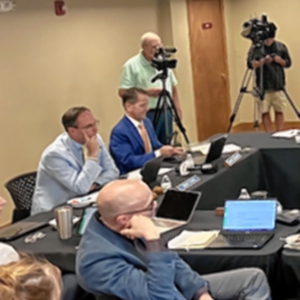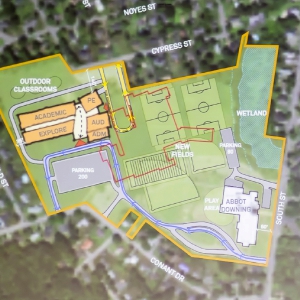Important lessons of civics and responsibility
| Published: 04-29-2023 2:00 PM |
I’m a member of the Economic Development and Fiscal Policy Committee of the New Hampshire Business and Industry Association, New Hampshire’s statewide chamber of commerce. On April 14, Maria Painchaud, interim Executive Director of an organization called New Hampshire Civics, gave a powerful 30-minute talk to our committee on the relevance of civics education to New Hampshire business owners. Her talk made clear to me that I owe it to myself, to the readers of this column, and particularly to its readers who are businesspeople, to discuss in one or more columns in this newspaper the importance of civic education not only for our children but also for New Hampshire businesses.
The starting point in any such discussion is to define civics. Defining civics isn’t easy, but here’s my definition: Civics is the field of learning that focuses primarily on teaching elementary and high school students about:
■The structure and operation of city, county and state governments and the U.S. government;
■The rights and duties of these four types of governments; and
■The rights and duties of citizens of these various types of government in their capacity as citizens.
To understand the contemporary importance of civics education, you need to know its historical background. The first public school in the United States was established in Massachusetts in 1837. Within just a few years thereafter, public schools had been established by virtually all states then in existence. A primary purpose of all of these schools was to teach students to become informed citizens and thus to ensure the continued strength of American democracy. In other words, a primary purpose of these schools was to teach civics.
Now, of course, all American states have public schools. But very few of them, including New Hampshire, provide significant civics education to students, whether in elementary school or in high school.
As a result, in New Hampshire, as in the rest of the United States, only about 60% of citizens can even name the three branches of the federal government. And it’s safe to say that far fewer citizens can provide even the most basic explanation of the legal structure of these three branches, much less identify the critically important checks and balances among them that are designed to prevent government abuse.
Article continues after...
Yesterday's Most Read Articles
 Opinion: Public school standards overhaul will impact every facet of public education in NH
Opinion: Public school standards overhaul will impact every facet of public education in NH
 With new plan for multi-language learners, Concord School District shifts support for New American students
With new plan for multi-language learners, Concord School District shifts support for New American students
 With Concord down to one movie theater, is there a future to cinema-going?
With Concord down to one movie theater, is there a future to cinema-going?
 Opinion: The Concord School Board can restore trust with residents
Opinion: The Concord School Board can restore trust with residents
 Concord man charged felony criminal mischief following vandalism outside NH GOP event
Concord man charged felony criminal mischief following vandalism outside NH GOP event
 Getaway driver in Winnipesaukee hit-and-run arrested
Getaway driver in Winnipesaukee hit-and-run arrested
More specifically:
■How many readers of this column can provide even a basic explanation of the governmental structure of the town of Concord, New Hampshire; of Merrimack County; of the state of New Hampshire; or, for that matter, of the Unites States?
■How many of us can explain the rights and duties of the mayor of Concord and of its city council?
How many of us can provide even the briefest overview of the New Hampshire state constitution?
■How many of us can explain the key importance of the above questions to New Hampshire businesses?
In forthcoming columns, I’ll answer these questions.
]]>


 Voice of the Pride: Merrimack Valley sophomore Nick Gelinas never misses a game
Voice of the Pride: Merrimack Valley sophomore Nick Gelinas never misses a game With less than three months left, Concord Casino hasn’t found a buyer
With less than three months left, Concord Casino hasn’t found a buyer Kearsarge Middle School drone team headed to West Virginia competition
Kearsarge Middle School drone team headed to West Virginia competition Phenix Hall, Christ the King food pantry, rail trail on Concord planning board’s agenda
Phenix Hall, Christ the King food pantry, rail trail on Concord planning board’s agenda
